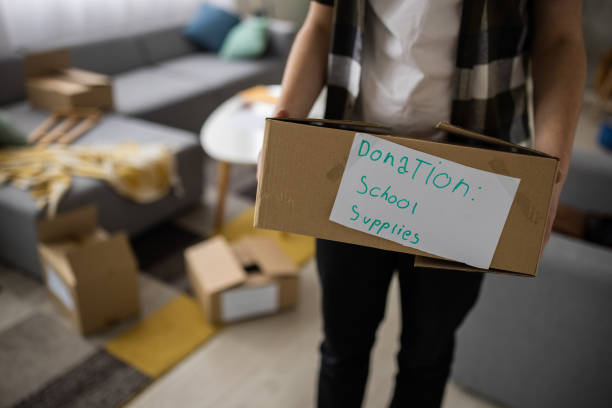You’re moving across the state to a new home with your family. You might be moving into a new house by yourself. One of the biggest events in adult life is moving into your newly purchased house or apartment. Moving to your new home that you have bought can be a life-changing event, especially if it is the first time you are living on your own.
Others may have different reasons for moving, including upgrading their home, moving with their partner, moving closer to their job, or changing their lifestyle. Moving to a new location is exciting, but the actual moving process can be stressful.
It’s as if you were to pack up all your belongings and move them to a different place. It’s not easy to pack “your whole life” like you would for a weekend getaway. It can be a stressful process to gather all of your belongings. This can take several days or even weeks. Many people find moving to be a stressful experience.
It can be stressful and disrupt your schedule. Imagine that you must dedicate at least a half-day to packing and organizing. It can be a stressful process to pack up your belongings, especially if you are feeling sentimental.
There are ways to make moving less stressful and to allow you to take in the moment. Here are ten tips for a stress-free move:
How to Manage Your Time
You can manage time. Moving is a time-consuming process. You’re more likely to forget things and become more anxious if you don’t give yourself enough time for packing and preparation. Give yourself as much time as you can to plan, including the timeline for your move and the packing service that you choose.
It may take some time to choose a professional moving company. You should ensure that they are able to move you to a certain area and have the necessary equipment to do so. Negotiate with the moving company about your scheduled date and time. You can do it all with less hassle and stress if you allow yourself time to complete everything.
Create a Checklist
It’s time to create a moving checklist once you and your family decide on a timeline for when you plan to start packing. Make a checklist of the things you need to accomplish in the next eight weeks. This eight-week plan can be used as a guide to help you decide which areas of your home or items need packing each week. This checklist can help you staand ensure youand ensure you don’t forget anything when you are packing.
Declutter your Home
Declutter your home before you begin packing and organizing your belongings. Decluttering your home and cleaning it will help you determine which items are essential and which ones you don’t need. You can then prioritize only the items that will be useful during your move. You will save time and energy by not packing things that you know you won’t use when you get to your new house.
Check each piece of furniture or item to see if it’s too large or old to pack. You can donate items that younor longer need tan o a local charity or sell them at a discount. You will have fewer items to move and fewer boxes to transport.
All the packing supplies you’ll need
Finally, it’s time to begin packing. Get all the materials you need to make the packing process easier. You’ll need a lot of boxes to fill an entire home. Also, you will need packaging tapes and markers. You’ll be able to finish packing faster if you have all the necessary supplies.
Have A Packing Central
Designate a room in your home as a packing center. You’ll need to spend all your packing time here. You won’t have to worry about your bedroom or living room looking messy, and this will reduce stress. You’ll always know where to go when you need to pack for the day. You can also bring in the items you have scheduled to fill that week.
Other Items According to Category
Pack items by category to stay organized. When packing your kitchen, for example, you could fill your knives into one container and your mixers into another. Label them as usual to make them easier to identify. You can do the same for your bedroom items. Pack all your pillows and blankets into one box, and then pack the bedside lamps or other similar items in another. You’ll find it easier to unpack all of these items at once after you arrive in your new hou.se.
Don’t forget to label everything.
Don’t forget to mark the boxes once you have finished packing an item or a room. Labeling your boxes is important, as it will save you a lot of time when you begin unpacking your new home. Labeling boxes with markers is a good idea, but it can be not easy to empty them if they are all the same size, color, shape, and style. If you don’t know what’s inside certain boxes, it can take a while to find the one you want.
You can save time by using color-coded boxes and tapes. Label them too. You can, for example, use green tape to label items in your daughter’s bedroom. You’ll find it easier to locate the green tape when you’re ready to unpack her items. Keep a list of all the colors and their meanings for future reference.
Group all fragile items together
Avoid mixing fragile and non-breakable items. Glassware is at risk of breakage during moving and transportation if you combine fragile items with solid ones. You should reserve separate boxes for delicatee items such as dishes, framed art, plates, glass, mirrors, breakable awards, and more. You can transport these boxes in your car so that they are not stacked underneath the other packages in the moving company’s vehicle.
Ask your professional moving company about their list of prohibited items.
Most moving companies have the same list of prohibited items. Asking for the list ahead of time will save you time and energy when packing items that may be banned.
Some prohibited items include:
Batteries
Aerosols
Gasoline – Gallons
Matches
Lighter
Liquid Bleach
Fertilizer
Pesticides
Commercial Cleaning Products
It is not unusual for a professional moving company to enforce this rule. The only thing they want to do is make sure everything in their moving vehicle is non-flammabl.e and safe.
Pack the suitcases ofShouldmember of your family.
Each member of your household should pack their suitcase. You must fill this suitcase with all the items you’ll need when you move into your new houselensesse items include toiletrlaptopsd clothes, eyeglasses/contact shoes, chargers, ce beddings andops or other electronic deviTheshoes, medication, bedding, weekd basic kitchen necessities. These items should last at least a week.
You won’t unpack your entire house the first day you arrive. You’ll need these items to get you through the first night and day in your new home without having to unpack random boxes or seabreath andthbrush.
Final ThoughthatYou can take a deep breath, retake,things start your move now that you know these tips. Always take things step-by-step and accomplish a small amount each day. Take your time and trust your timeline. Do not rush so much that you lose your mind.
It’s possible that you won’t even realize when the packing is done. When you move into your new home, it will take time for your mind to fully grasp the fact that this is now your family’s new home. Enjoy the process and breathe.

